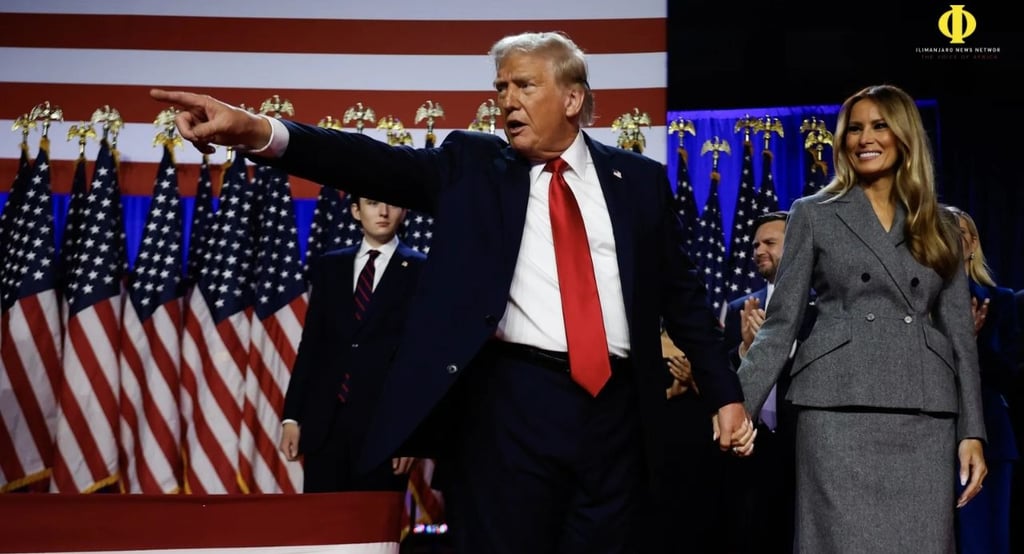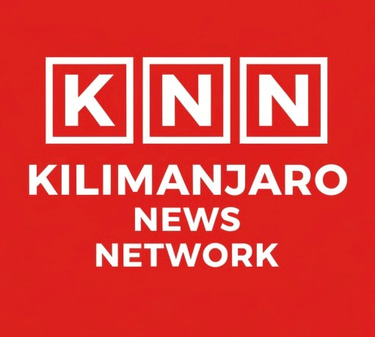Trump’s Return: A Catalyst for Africa's Strategic Independence.
As Western leaders like Britain’s Sir Keir Starmer, France’s Emmanuel Macron, Canada’s Justin Trudeau, and poor Ukraine’s Volodymyr Zelenskyy who has literally sacrificed his country fighting to defend what he calls “western values” now brace for Donald Trump’s return to power, one might imagine them lining up to genuflect and kiss the proverbial ring of the “new king of the West.” But what does this mean for Africa?
POLITICS
E. N. Quenti
11/7/20242 min read


As Western leaders like Britain’s Sir Keir Starmer, France’s Emmanuel Macron, Canada’s Justin Trudeau, and poor Ukraine’s Volodymyr Zelenskyy who has literally sacrificed his country fighting to defend what he calls “western values” now brace for Donald Trump’s return to power, one might imagine them lining up to genuflect and kiss the proverbial ring of the “new king of the West.” But what does this mean for Africa?
Before we continue, don't forget to subscribe to Kilimanjaro News Network. Click the bell icon to be notified for more interesting and in-depth investigations and analysis of events happening throughout the continent and the diaspora.
Donald Trump's emphatic re-election as U.S. President presents a pivotal moment for Africa, a continent increasingly asserting its independence and redefining global alliances. Trump's previous administration was marked by a transactional approach and derogatory remarks about Africa, such as referring to some nations as "shit-hole countries". This rhetoric, coupled with policies that deprioritized Africa, diminished U.S. influence on the continent.
Africa's Strategic Realignment
In recent years, African nations like Burkina Faso, Mali, and Niger have pivoted towards Russia and China, seeking partnerships offering more equitable economic benefits. For instance, Burkina Faso has formed alliances with Russia's Wagner Group for security support, while Mali has similarly engaged Russian military assistance. These moves reflect a broader strategy to reduce dependency on Western powers.
Economic Autonomy and Resource Control
African countries are increasingly taking control of their economic destinies by processing natural resources domestically. Ghana has mandated local processing of gold to retain more value from its resources. Gabon has implemented policies to process timber domestically, and Burkina Faso is focusing on uranium processing. These initiatives exemplify a growing confidence among African leaders to manage their resources independently.
Contrasting Leadership Styles
Trump’s "America First" policy contrasts sharply with the assertive economic strategies of African leaders. His administration's focus on bilateral trade deals often overlooked the collective interests of African nations. Meanwhile, African leaders are prioritizing regional cooperation and self-reliance, reflecting a shift in power dynamics.
Challenges and Opportunities
A second Trump presidency could exacerbate existing challenges for African economies if U.S. trade policies become more insular. However, this scenario also presents opportunities for Africa to strengthen ties with other global powers like China and Russia. China's Belt and Road Initiative has significantly increased its influence through infrastructure investments across the continent. Russia's military engagements have also expanded its presence in African security matters.
In conclusion, Trump's victory may accelerate Africa's strategic pivot away from traditional Western alliances, challenging established power dynamics and offering new pathways for economic growth and development. This shift underscores the continent's rising influence in global affairs and highlights the need for nuanced engagement strategies from the U.S. to remain relevant in this evolving landscape.
In a world where global alliances are shifting, how should African nations balance partnerships with Western countries and emerging powers like China and Russia to best serve their economic and political interests?
With the rise of nationalism in Western politics, exemplified by leaders like Donald Trump, what are the potential risks and benefits for global cooperation on issues like climate change and international security?
As African countries increasingly assert control over their natural resources by mandating local processing, how might this impact global supply chains and the economic relationships between Africa and the rest of the world?
Given the historical context of colonialism and current geopolitical dynamics, what role should Western nations play in supporting or respecting the sovereignty of African nations as they pursue independent economic and political paths?

